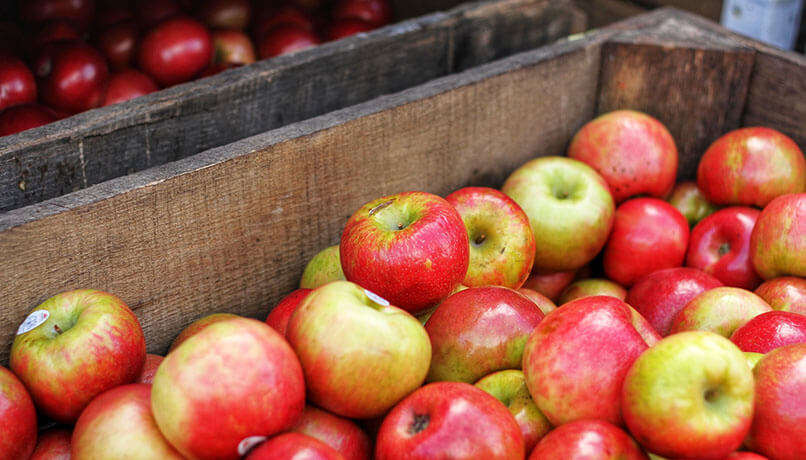Research suggests that many diners are citing sustainability as the deciding factor in which restaurant they choose to dine, why do you think restaurants should become more sustainable?
Sustainability, what exactly is it? Diners seem to be demanding it more and more, but do they know what it means either? Is it in danger of being a buzzword that loses its power by being overused in a marketing spin to win guests over?
Why do I think restaurants should become more sustainable? That’s the wrong question for me. Why do restaurants think they can get away without being more sustainable? To be more specific, for me, sustainability is about from where you source your ingredients - both wet and dry. There are countless avenues we can explore about eco-chemicals and paper straws, but they are very much moral questions about how you feel about the planet we inhabit, and that is for another discussion. 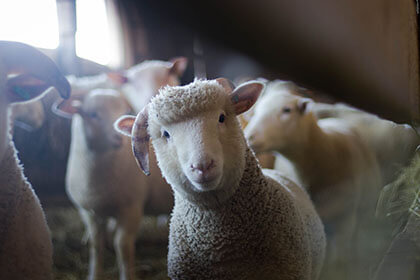 Let’s start at the beginning. Since the idea of an innkeeper providing food and drink to travellers and locals alike began, he(she) has had to source ingredients to make those provisions. Almost all of those supplies would have been incredibly local and unavoidably seasonal. A hearty meal would have been made with a wild animal that had been hunted primarily on foot, or a domestic animal that had been cared for in the neighbourhood if not their own back yard, and fruit and vegetables that natured provided at that time of the year. Refreshing drinks, hot and cold would have required planning and sourcing such as home-brewed ales, ciders, wines, meads etc. and dried plant leaves to make hot infusions. While some exotic ingredients would have been available at a high cost, to keep things affordable, your innkeeper would keep it local.
Let’s start at the beginning. Since the idea of an innkeeper providing food and drink to travellers and locals alike began, he(she) has had to source ingredients to make those provisions. Almost all of those supplies would have been incredibly local and unavoidably seasonal. A hearty meal would have been made with a wild animal that had been hunted primarily on foot, or a domestic animal that had been cared for in the neighbourhood if not their own back yard, and fruit and vegetables that natured provided at that time of the year. Refreshing drinks, hot and cold would have required planning and sourcing such as home-brewed ales, ciders, wines, meads etc. and dried plant leaves to make hot infusions. While some exotic ingredients would have been available at a high cost, to keep things affordable, your innkeeper would keep it local. 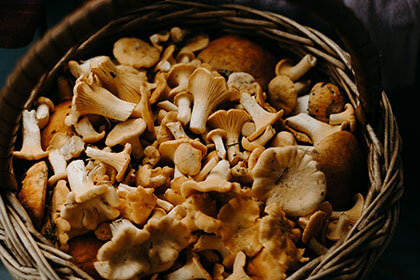 Throughout my career, I have always used local wherever possible, even winning awards for it (clang, there goes a gong). I feel strongly that nature provides a larder suitable to our health needs according to our locality and season, but also perfect accompaniments for each other. It is no coincidence that rainbow trout tastes fantastic when cooked with mushrooms from the field the river runs through.
Throughout my career, I have always used local wherever possible, even winning awards for it (clang, there goes a gong). I feel strongly that nature provides a larder suitable to our health needs according to our locality and season, but also perfect accompaniments for each other. It is no coincidence that rainbow trout tastes fantastic when cooked with mushrooms from the field the river runs through.
I use the best ingredients - locally sourced, seasonally purchased, cooked with passion, good humour, a dash of irony and attention to detail. As a chef I can only smile at the beautiful ingredients we have on our doorstep here in and around North Essex, and the artisan producers who spend so much time and effort to bring us these ingredients at their very best. Everything from some of the finest beef, lamb and pork, through all the wonderful kitchen garden, hedgerow and orchard produce, to some truly excellent beverages. 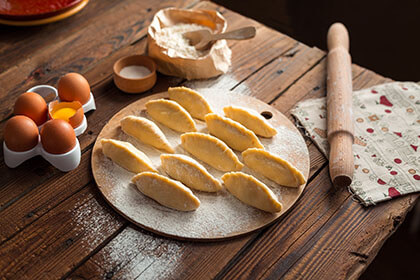 The challenge I face is how to present such a gift of ingredients in a manner that allows the customer to appreciate how fine our produce is. In this corner of Europe, our culinary heritage is almost totally ignored and often ridiculed. In our quest to embrace eclectic dishes from around the globe, we overlook so much that is good on our own food doorstep. Kedgeree, shepherd’s pie or Welsh rarebit can be sublime when prepared with skill and ingenuity. Mackerel, shrimps and crab from our shores so often overlooked and exported. The green and pleasant land in which we live is a fantastic natural larder, with possibly the most varied range of ingredients available to a discerning cook. All that’s required is the confidence to showcase it.
The challenge I face is how to present such a gift of ingredients in a manner that allows the customer to appreciate how fine our produce is. In this corner of Europe, our culinary heritage is almost totally ignored and often ridiculed. In our quest to embrace eclectic dishes from around the globe, we overlook so much that is good on our own food doorstep. Kedgeree, shepherd’s pie or Welsh rarebit can be sublime when prepared with skill and ingenuity. Mackerel, shrimps and crab from our shores so often overlooked and exported. The green and pleasant land in which we live is a fantastic natural larder, with possibly the most varied range of ingredients available to a discerning cook. All that’s required is the confidence to showcase it.
But why else should you buy locally? The innkeeper from the ‘times of old’ would barter, buy and sell with those who lived nearby. They would support each other in their business transactions, selling bread and then buying a pint in a wheel of the local economy. You provide your neighbours with an income which they spend with you. And we think we are so enlightened and clever.
So why should restaurants be sustainable?
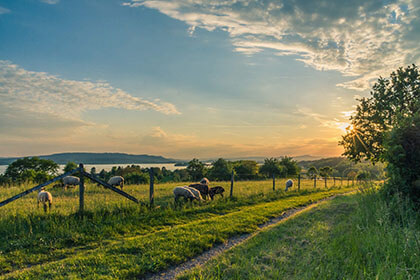 Buy locally, your produce will have fewer air miles, it will be fresher, had less handling, be cheaper as a result, and you will build a relationship with your neighbour who will be inclined to support your business in return.
Buy locally, your produce will have fewer air miles, it will be fresher, had less handling, be cheaper as a result, and you will build a relationship with your neighbour who will be inclined to support your business in return. - Buy seasonally, buy your produce when there is plenty of it, and market prices will keep costs low, giving you a better margin.
- Return those cardboard boxes to your supplier; they will thank you for it as will our landfills.
This all applies to those wet ingredients as well. Customers love to see local beers and ales, we are in Adnams and Aspalls country around here, and until recently both were local family businesses. To be fair Adnams still is (although I wouldn’t be surprised if that changes soon, you heard it here first). These businesses are heavily invested in their surroundings, seeing significant economic positives for the local economy. So why aren’t restaurants sustainable?
 Well, diners need to look at their own habits over the last decade or so. We only reflect what our customers demand. Worldwide cuisines available year-round in restaurants have created a high mileage supply chain which chains and supermarkets have taken full advantage of to provide lower quality, seemingly cheaper produce. Having to explain to a member of the accountancy team why buying asparagus from Peru is not a good idea is not a rare occurrence. We know that it has a shorter shelf life, more inferior quality due to degradation during transport and a hidden cost of sending finances out of the area so it will never return to our tills.
Well, diners need to look at their own habits over the last decade or so. We only reflect what our customers demand. Worldwide cuisines available year-round in restaurants have created a high mileage supply chain which chains and supermarkets have taken full advantage of to provide lower quality, seemingly cheaper produce. Having to explain to a member of the accountancy team why buying asparagus from Peru is not a good idea is not a rare occurrence. We know that it has a shorter shelf life, more inferior quality due to degradation during transport and a hidden cost of sending finances out of the area so it will never return to our tills.
But it requires a holistic view rather than a P&L sheet. Be sustainable in your outlook; look to your suppliers first. This industry thrives on relationships, so make your local suppliers part of your team. Keep air miles down, prevent ridiculous mileage supply chains that are harming our environment, use seasonal local produce and champion them in all their glory. Put money in your neighbours pocket so they can put some in yours!
.png?width=1571&height=766&name=CFD%20knife%20and%20fork%20logo%20(carbonfriendlydining.org).png)

